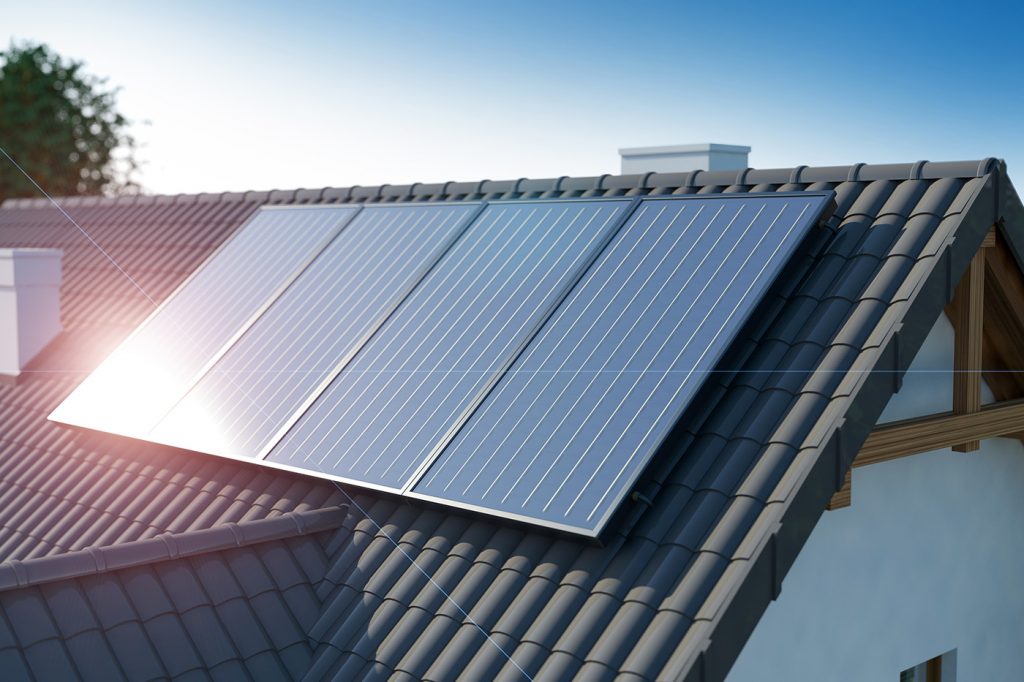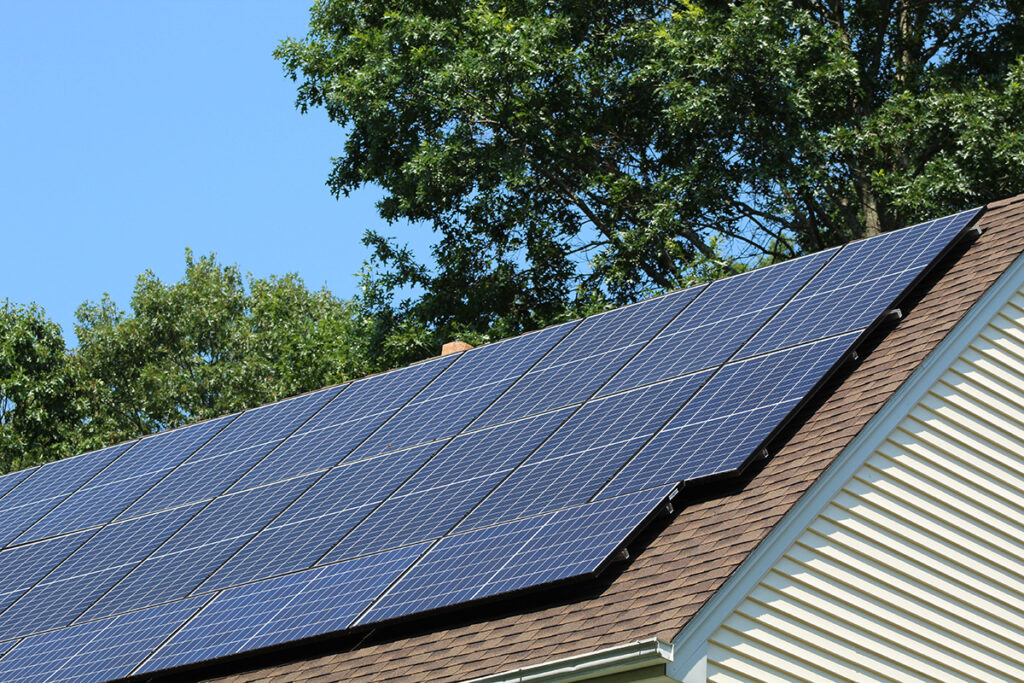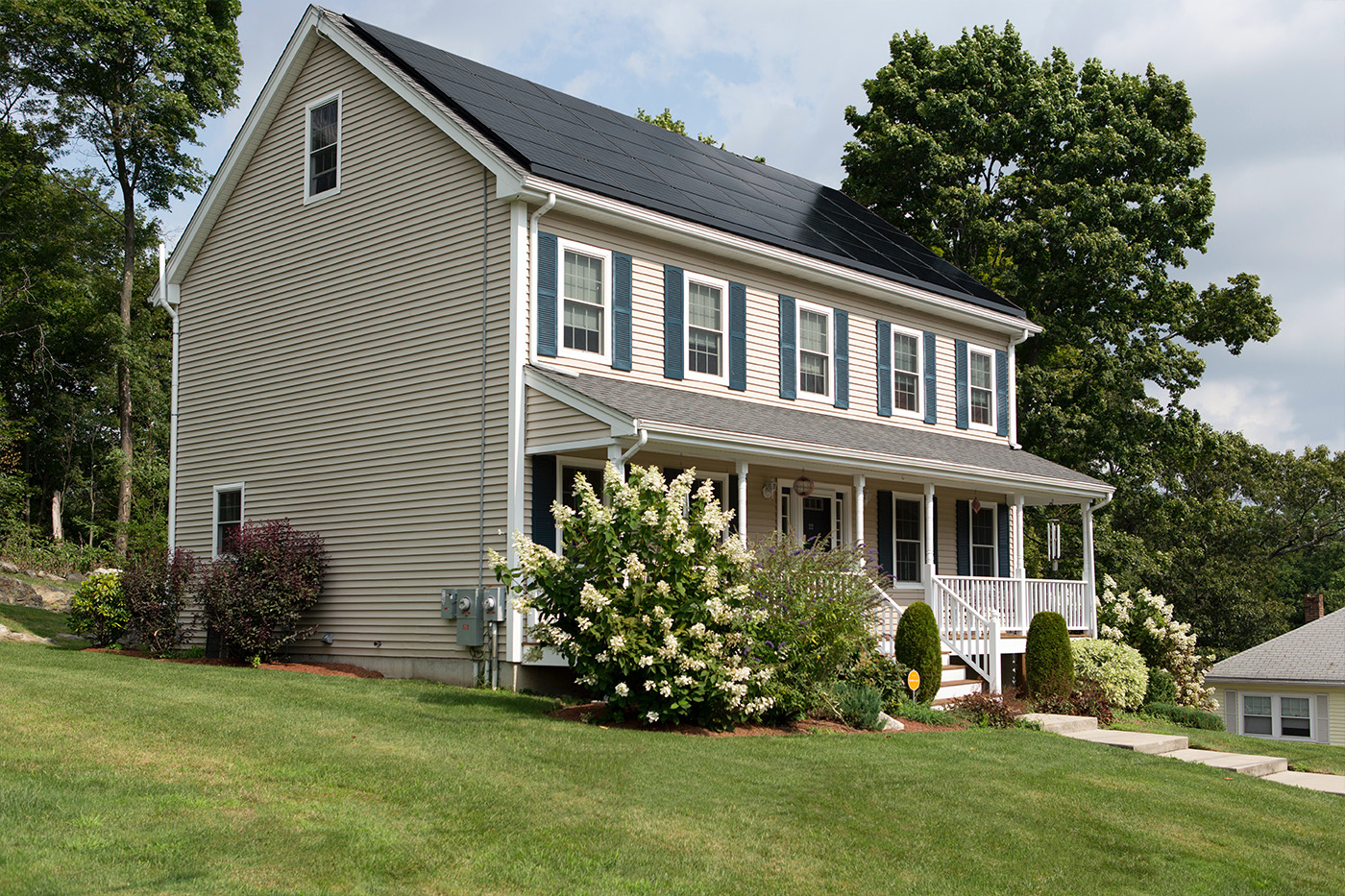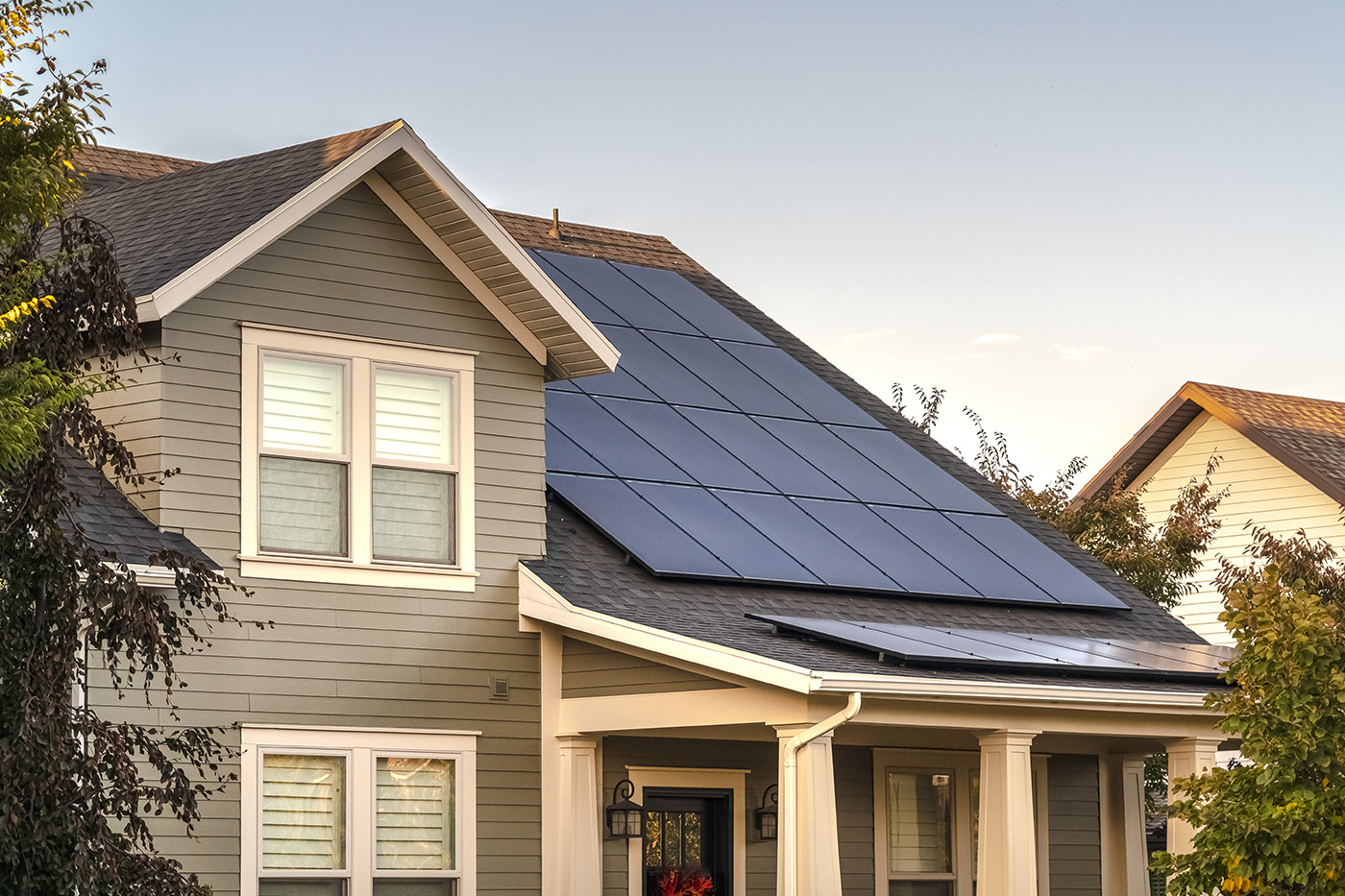Is Solar Right For My Home?
Are you a homeowner thinking of switching to solar?
This could be the best decision you take for you and your family’s future. And for the future of the world.
Here’s a quick checklist to help you determine if solar energy is right for your home.


Is Your Roof In Good Condition?
To install the solar panel, your roof has to be in good condition and preferably made of durable roofing materials such as asphalt shingles, metals, or tiles. In case the roof needs some repair, or you plan to replace it anytime soon, we would recommend you get it done before installing solar panels.
Another prerequisite is space—your roof should have ample space to install multiple panels. How much space the solar energy system will exactly need depends on factors like your energy requirement, your roof’s direction, sun exposure, your location, and the number of solar panels you install. It’s ideal to not have poorly-located vents and chimneys, as they tend to limit the available space.
What Can You Do If You Don’t Have Enough Space On The Roof?
Maybe your roof requires replacement, but you don’t want to go ahead with it right away. Or maybe, the roof space is not enough for installing the panels. Despite these restrictions, you can go ahead with solar installation if you have a spacious backyard.
However, ground-mount solar may result in higher initial costs, and you will lose access to a big chunk of green verge on your property. With children and pets around, safety is a concern too. So if space isn’t a problem for you, the rooftop works the best for solar PV systems.
Do You Like Spending More On Utility Bills?
We’re sure you nodded a big NO this time. With high inflation, the cost of living has shot up significantly including the electricity costs across the US. According to the US Bureau of Labor Statistics, from July ’21 to July ’22, electricity price per kWh in the US has increased by 16% on average, with Houston residents shelling out 134% more in energy costs! And to put things into perspective, the annual inflation rate is 8.5%.
The hefty amount you’re paying towards your energy bills will only continue to increase in the future. So if your electricity consumption is more than 500 kWh per month, it would be a good decision to switch to solar energy. You will continue to reap the benefit of the solar panel for multiple decades, and with all the money you’ll save on your utility bills, the solar panel will start paying for itself in just a few years.

Does Your House Get Enough Sun?
To get the most out of your solar power system, it’s necessary to assess whether your roof gets a good amount of direct sunlight. You could take the help of Google Project Sunroof to check your roof’s solar saving potential. Having a south or west-facing roof is helpful, as it ensures maximum sun exposure.
If there are tall trees, or large houses in the neighborhood that prevent direct sunlight from reaching your property, the panel may not be able to produce enough energy to meet your daily requirements. Before installation, our experts at KR Solar will do a thorough evaluation to check whether your home is a good fit.
Do You Like Receiving Tax Incentives?
With solar, you don’t just reduce utility bills, but you also get tax benefits. There are federal tax incentives, property tax incentives from the state, federal grants, and possibly even rebates from your utility company. Some of our customers have had nearly 50% of their system covered by various incentives.
The Inflation Reduction Act (2022) has extended the federal solar tax credit by 10 years. So till 2032, you’ll enjoy a tax credit of 30%, which will subsequently reduce to 26% and 22% in 2033 and 2034, respectively. So if you have waited till this far, today is the ideal moment to install solar panels, enjoy tax benefits, and pay practically nothing as utility bills.

What Do You Gain After Installing Solar Panels for Home?
If you’re thinking of getting a solar power system, you might be wondering what are the benefits beyond tax incentives. Solar panels offer savings, increase your home value, lead to a positive environmental impact, and make your home energy-independent.
Great Return on Investment
When you install solar panels, you produce the energy yourself and the money you spend goes towards paying off an asset that you own (your solar array), and that asset dramatically increases the value of your home.
In case you decide to sell your house in the future, you’ll get an average 4.1% higher price than a regular home without solar panels, and this can go up to as high as 5.4% in New York City. Installing solar is like a home remodel that pays for itself. Stop renting your power and own it yourself!
Predictable Energy Costs
Electricity costs have been on the rise for years. Chances are your household costs will continue to rise too. If you still keep relying on non-renewable energy resources for your daily electricity, you’ll only drain out your wallet.
When you install solar on your home, you don’t have to worry about what the electricity market is doing. Your costs are fixed. The solar panel you install will easily last for 25-30 years. Your neighbor’s utility bills may double or quadruple over the next 20 years, but yours won’t change a penny.
Positive Environmental Impact
Climate crisis is real and it’s time we start taking care of the environment. Solar panels are a great way to reduce your carbon footprint, reduce emissions caused by the burning of fossil fuels, and save water used in traditional energy production.
Residential buildings using conventional on-grid electricity are responsible for 38% of carbon emissions in the United States. The typical home solar installation is a great way to reduce your carbon emissions by about 4 tons per year—the equivalent of you planting 100 trees annually!



